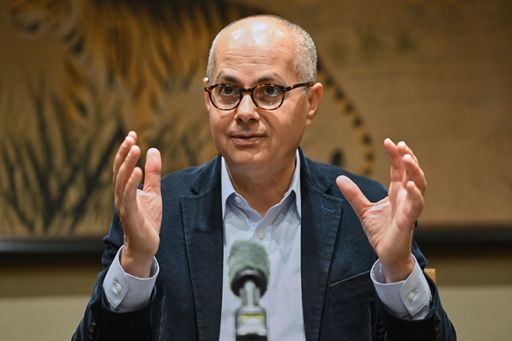Think of it as molecular architecture, building frameworks at scales so small that they have to be measured in nanometres, yet so precisely engineered they can perform specific tasks.
The metal-organic frameworks pioneered by Yaghi are remarkable for their porosity. They’re mostly empty space, which makes them incredibly light yet structurally stable. More importantly, that space can be designed to trap specific molecules. Toxic gases. Carbon dioxide. Water vapour.
It’s the water application that harks back to his childhood mornings in Jordan. Yaghi went on to develop a metal-organic framework that acts like a sponge and could pull water vapour from the air.
Even in the desert. Even in places where water doesn’t come through taps, not even once every 14 days.
The technology could provide water for millions in water-stressed regions. People facing the same struggles that Yaghi’s family once knew.
In lands where displacement is a daily shadow, like Gaza, once home to his family’s Bedouin village, where his father tended cattle, life carries the weight of both memory and loss.
Yaghi seldom makes any grand political statements about this connection. He doesn’t need to.
His impact on modern science extends well beyond water harvesting.
The numbers reflect this breadth. A whopping 300 scientific papers published. More than 250,000 citations. An H-index of 190, which essentially means 190 of his papers have been cited at least 190 times each. It’s a measure of influence that places him among the most impactful scientists of our age.
The son of Gaza
Before the Nobel, the honours had already accumulated. The prestigious Wolf Prize in Chemistry in 2018. The King Faisal International Prize in Science in 2015. Then, in 2024 alone, the Solvay Prize, Tang Prize, and Balzan Prize.
Yaghi received his PhD in chemistry from the University of Illinois at Urbana-Champaign and was a National Science Foundation postdoctoral fellow at Harvard University. He taught at UCLA before joining UC Berkeley.
Standing at Frankfurt airport, phone in one hand, luggage in another, hearing he’d won the 2025 Nobel Prize, Yaghi signified something important about how knowledge works, fundamental aspect of which is that it doesn’t always require privilege to pursue, and surely doesn’t demand any pedigree.
It asks only for rigour, curiosity, and the patience to look closely at things.
From a single room as a poor refugee in Jordan to Stockholms Konserthus, the fabled Nobel Hall. From waiting for water to inventing ways to pull it from air.
To his students at Berkeley, Yaghi remains disarmingly humble. To his colleagues, a quiet pioneer. To his fellow Palestinians, scattered and displaced, he is a reminder that displacement can breed not just loss, but light.
And perhaps in the end, he may be Jordanian by circumstance, Saudi by citizenship, American by passport — yet he is unmistakably, indelibly, the son of Gaza.
A boy who once lined up buckets under a leaking tap has now bottled air itself.
